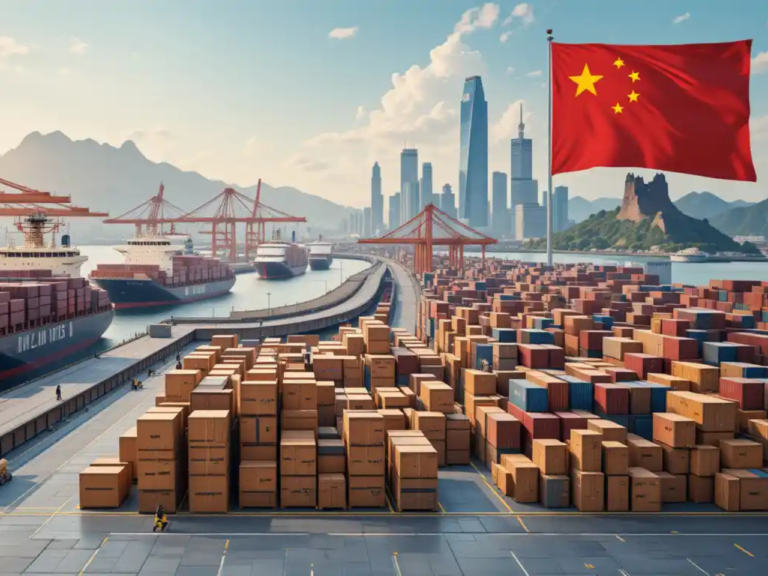Importing from China can be a game-changer for businesses looking for cost-effective products, but if you’re not careful, common mistakes can lead to financial loss, delays, or even legal troubles. Whether you’re a first-time importer or an experienced buyer, avoiding these mistakes can save you time, money, and frustration. In this guide, we’ll discuss the most common import mistakes and how you can avoid them to ensure a smooth sourcing process.
1. Not Researching the Supplier Properly
One of the biggest mistakes importers make is trusting suppliers without verifying their authenticity. Many businesses fall for fake manufacturers or unreliable traders, leading to poor-quality products or financial scams.
How to Avoid This Mistake:
- Verify suppliers on platforms like Alibaba, Global Sources, and 1688.
- Check business licenses, factory certifications, and past customer reviews.
- Use third-party services like SGS, Bureau Veritas, or Asia Inspection to conduct factory audits.
- Read our guide on How to Verify Chinese Suppliers to ensure you’re dealing with a genuine manufacturer.
2. Ignoring Product Quality Control
Many importers assume that all factories maintain high-quality standards, but that’s not always the case. Skipping quality checks can lead to receiving defective or substandard goods.
How to Avoid This Mistake:
- Always request samples before placing a bulk order.
- Hire third-party inspection agencies like SGS or Bureau Veritas to inspect products before shipment.
- Clearly define product specifications and quality requirements in your contract.
- Learn more about Quality Control in China to avoid costly mistakes.
3. Misunderstanding Import Regulations and Duties
Each country has different import duties, tariffs, and regulations. If you don’t research these in advance, you may face unexpected costs or customs clearance issues.
How to Avoid This Mistake:
- Check your country’s import tax rates and customs policies before ordering.
- Work with an experienced freight forwarder or customs broker to manage documentation.
- Read our Import Duties and Taxes Guide to calculate costs accurately.
4. Poor Communication with Suppliers
Language barriers and cultural differences can lead to misunderstandings about product specifications, pricing, or delivery times.
How to Avoid This Mistake:
- Use clear, written contracts that specify all product details.
- Avoid using Google Translate; instead, hire a professional sourcing agent if needed.
- Maintain regular communication via email, WeChat, or Alibaba chat.
5. Choosing the Wrong Shipping Method
Shipping costs and delivery times vary depending on whether you choose air freight, sea freight, or express courier. Many importers make the mistake of selecting a shipping method without understanding its impact on cost and delivery time.
How to Avoid This Mistake:
- Learn the differences between FOB, CIF, and EXW Incoterms to understand shipping responsibilities.
- Use our Shipping from China Guide to choose the best method for your needs.
- Work with a trusted freight forwarder to avoid delays and unexpected costs.
6. Ignoring Legal Agreements and NDAs
If you’re working on a custom product, not having a proper legal agreement in place can result in your designs being copied or misused.
How to Avoid This Mistake:
- Sign a Non-Disclosure Agreement (NDA) before sharing product details.
- Ensure that the contract is enforceable under Chinese law.
- Check out our China NDA and Contract Guide for legal protection tips.
7. Not Negotiating Pricing and MOQs
Some importers accept the supplier’s first price without negotiating, which often leads to higher costs.
How to Avoid This Mistake:
- Always negotiate the Minimum Order Quantity (MOQ) and pricing.
- Compare quotes from multiple suppliers before making a decision.
- Use our Negotiation Guide for Chinese Suppliers for better pricing strategies.
8. Lack of Long-Term Planning
Many businesses only focus on one-time orders instead of building long-term relationships with suppliers. This can lead to inconsistent product quality and higher costs over time.
How to Avoid This Mistake:
- Develop a long-term sourcing strategy by building strong relationships with suppliers.
- Place small test orders first before scaling up.
- Read our Supplier Relationship Management Guide to ensure consistent success.
9. Not Understanding Payment Methods and Risks
Paying suppliers without using a secure payment method increases the risk of fraud.
How to Avoid This Mistake:
- Use secure payment options like Alibaba Trade Assurance, PayPal, or Letter of Credit (LC).
- Avoid full advance payments; instead, use a structured payment plan (e.g., 30% deposit, 70% after inspection).
- Check out our Safe Payment Methods for China for secure transactions.
10. Rushing the Process Without Proper Planning
Many new importers rush to place orders without conducting proper research and planning, leading to costly mistakes.
How to Avoid This Mistake:
- Follow a structured China sourcing plan from product selection to delivery.
- Work with experienced sourcing agents or consultants if necessary.
- Learn the Step-by-Step China Importing Process to avoid errors.
Final Thoughts
Importing from China can be highly profitable, but avoiding common mistakes is key to ensuring a smooth and successful sourcing experience. By thoroughly vetting suppliers, prioritizing quality control, understanding import regulations, and maintaining clear communication, you can avoid costly errors and streamline your business operations.
For more expert tips on China sourcing, supplier verification, and logistics, visit Top China Sourcing.






